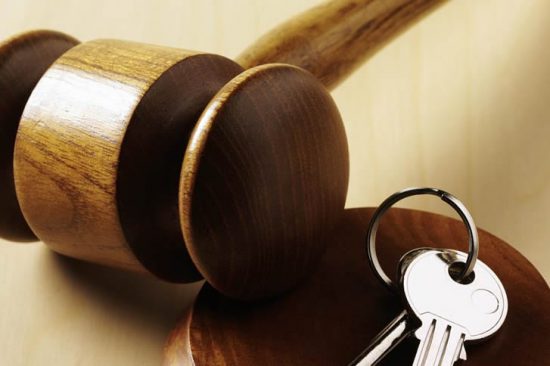So, you’re looking to buy a piece of property, and considering the secondary market because of various reasons. You happen to come across an article that says auction properties can be hidden gems, so you browse through the newspaper classifieds section and search online for auction properties. However, you feel it is a daunting task, as there are many misconceptions and rumours about auctioned properties in Malaysia. As with all new experiences, the process of buying an auction (“lelong”) property in Malaysia can be a little confusing and complicated for first-timers, so we’ve found some useful tips to help prepare prospective bidders out there.
Read on for the 10 steps to buy auction properties in Malaysia; and if you’re interested, you can find out more about the recent e-Lelong policy and its controversy.
#1 Identify the deal
There are plenty of auction cases (around 1,000!) each week in Malaysia, but generally, only about 10% to 15% are worth buying. Therefore, you will have to search for properties up for auction that catch your interest and do your own research on the location, facilities, etc. Information about the unit/lot is usually made available 10-14 days before the auction date.
#2 Obtain the POS & COS
Piror to the bidding, you will have to get a copy of the Proclamation of Sale (POS) and Condition of Sale (COS). Make sure you understand all the terms and conditions, or appoint an agent/lawyer to assist you and provide explanations. This will save you a lot of headache and hassle later on.
#3 Inspect the property
Just like buying any other type of property, potential bidders/buyers should find out the surrounding neighbourhood, the exterior of the property, and even the interior (if possible). If the property is tenanted, it is a good idea to find out who are the current tenants and compare it to the owners stated in the POS. In some cases, the current tenants are unwilling to vacate the property even after it has been auctioned off, which will be cause for problems for the new owner. Most importantly, check whether there is any third party caveat on the property and find out market prices for similar properties in the area so that you can plan your bidding budget.

Example of a bank draft (Photo from DifferenceBetween.com)
#4 Prepare the deposit
If you’re prepared to bid, then you also have to be prepared to pay the deposit upfront too. Prepare a bank draft for the required deposit (either 5% or 10%) of the reserved price. You most likely have to prepare additional cash on the auction day to top-up the difference on the deposit sum between the successful bidding price and the reserved price. This sum must be paid immediately after you’ve successfully won the auction.
#5 Prepare necessary documents
Of course, besides the bank draft, you will also have to bring along several relevant documents to participate in the bidding. For individuals, a double-sided copy of your identity card (NRIC) is required. If the bidder is unable to bid in person, the representative, or proxy bidder, will need to bring an authorization letter. For companies, the bidder will need to bring along the company resolution, copies of all directors’ NRIC, Form 9, and Form 49 along with the bank draft.
#6 Arrive early
Take note of the auction time, date, and venue. It is recommended that you arrive early (about 20-30 minutes before) on the day of the auction as they are usually very punctual. Head to the auctioneer’s counter to register and submit the relevant documents. Registered bidders will be given a bidding card with a number. Take a seat and wait for the bidding to start.
#7 Listen to the auctioneer
As the “host” of the auction, the auctioneer will first brief everyone about the key terms and conditions, then proceed to begin the auction. Listen carefully in case there are any changes in the T&C, and don’t be afraid to ask questions if you have doubts.
#8 Start bidding
Raise your bidding card to signify interest and indicate your bidding price. Bidding stops when the highest price is called out three times by the auctioneer. At the fall of the hammer, the property is sold to the highest bidder. No further bids will be entertained after that.
#9 Win or Lose?
– Successful bidders are required to sign the Contract of Sale and pay the remaining difference on the same day itself if there’s an increment to the successful bidding price.
– Unsuccessful bidders can redeem their bank draft at the registration counter immediately after the auction.

#10 After the Auction Day
Successful bidders are given 90-120 days to settle the final 90% of the property’s purchase price. Remember, the Contract of Sale is the ONLY valid document; there are no other sales and purchase agreements. If you require a loan, take the Contract to the bank to apply for a loan, and to a lawyer for conveyancing to transfer ownership at the land office.
Want to find out more about buying auction properties? The Malaysian Bar has plenty of useful advice here. You might also want to take a look at this informative video from Joel Lee about preparing to bid for auction properties:
May the bargains be ever in your favour at property auctions! 😉







